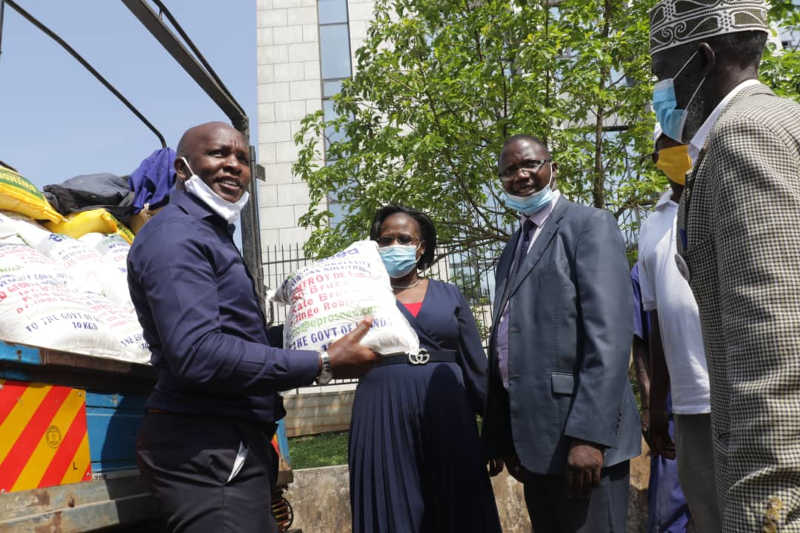The adverse effects of COVID on livelihoods among Ugandans are getting more grimmer with findings showing declining incomes and expenditures.

New research has revealed that at least 41% of businesses in Uganda have suspended work due to disruptions arising from COVID-19 mitigation measures.
The study conducted by Twaweza in partnership with the Food Rights Alliance, also shows that the number of Ugandans who are unable to meet their basic needs has increased to 26% from 22% as recorded in January before COVID.
“On average, Ugandans report that their households spend has declined to UGX 10,800 per day, from UGX 14,100 in January of this year. The drop has been sharper in rural areas (from UGX 14,600 to UGX 10,300) than urban (UGX 13,100 to UGX 12,300).
Despite this, more households find their income does not meet their daily needs now compared to January (26% compared to 22% previously),” the report reads.
Marie Nanyanzi of Sauti za Wananchi at Twaweza, said: “These data provide some early insight into a new economic order for Ugandans following Covid-19.The intensifying pressure on citizens’ ability to meet basic needs is clear.
Important changes in people’s spending and financial management are already apparent – from quiet belt-tightening to growing unwillingness to ask for help from our neighbours.”
Perhaps on a positive note, Ugandans are relying on families and friends for support when they are unable to make it.
This social support structure helps to prevent depression and other adverse forms of destitution seen in many Western societies.
“When asked who they would turn to for help if there was not enough money, 3 out of 8 Ugandans say they would not ask for help, compared to 2 out of 8 who said the same in January. Among the rest who are more willing to ask for help, fewer of them would ask friends and more would seek help from family compared to January of this year,” the report reads.
But the report indicates that seeking for support from family and friends is among a range of previously less-used options that are becoming slightly more common during the Covid-19 pandemic. Others include selling assets and seeking casual work.
The survey also notes that given the mounting financial pressure, Ugandans are in need of some additional support.
“Overall, 1 out of 10 Ugandans have received support in the last two months from government, NGOs or any other actors. Urban households are three times more likely to receive support than rural homes (24% versus 7%), which is in line with the government’s mitigation strategy for the economic effect of COVID-19,”The report states.
It also noted that during the COVID-19 pandemic, most Ugandans are continuing to do some form of work where only 1 out of 7 reported that they had not done even an hour of work during the previous week.
” In urban areas 1 out of 5 did not do any work while in rural areas 1 out of 10 did not. Among those who did not do any work, half of them say they do not have any work to return to following the lockdown against Covid-19,”the report further reads.
She added that the data also reveal that, contrary to expectation, rural households are facing even greater financial strain than their urban counterparts without thoughtful and assertive intervention, all Ugandans may face even harder times ahead.
Agnes Kirabo, the Executive Director of the Food Rights Alliance said: “The data show the gap in Uganda’s food governance system; whereas, household food security has been more resilient to shocks such as pandemics, national food security suffers under such shocks, weakening household food security further.”
She noted that enhancing national food resilience requires a holistic approach with a well-defined and significant role for the state.
“COVID 19 serves to remind government to put back food in its primary position as a national priority due to its significant role in macro-economic stability, human security, and national stability overall as well as an underlying determinant of other social outcomes such as health.”
“Appropriate frameworks are required as a matter of urgency to govern food production, food trade and food consumption to ensure sustainability, stability and safety,” she concluded.








